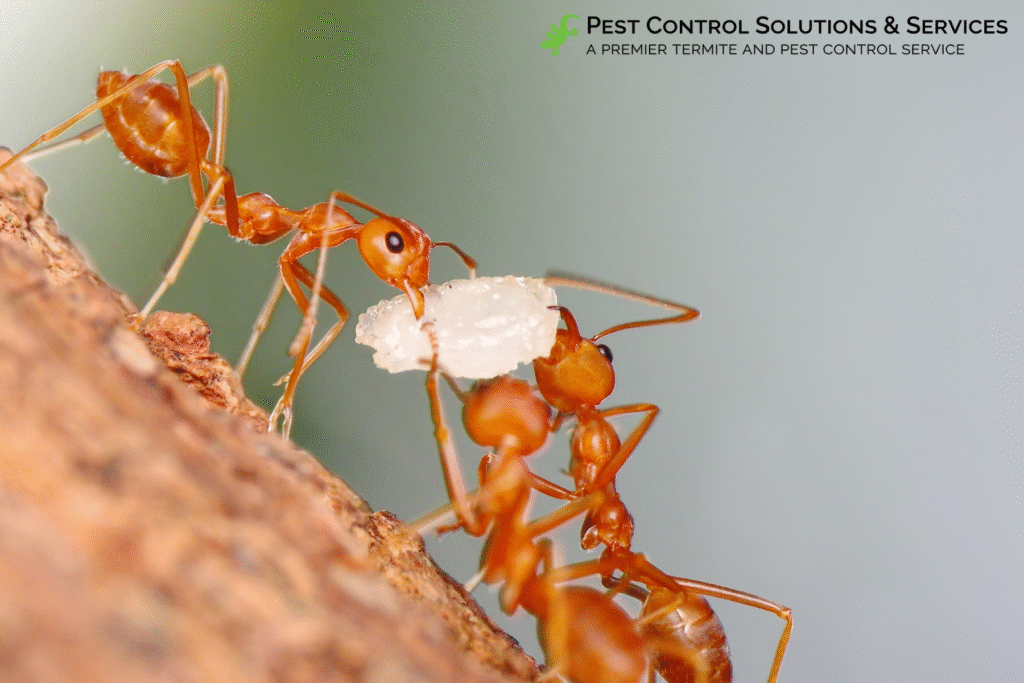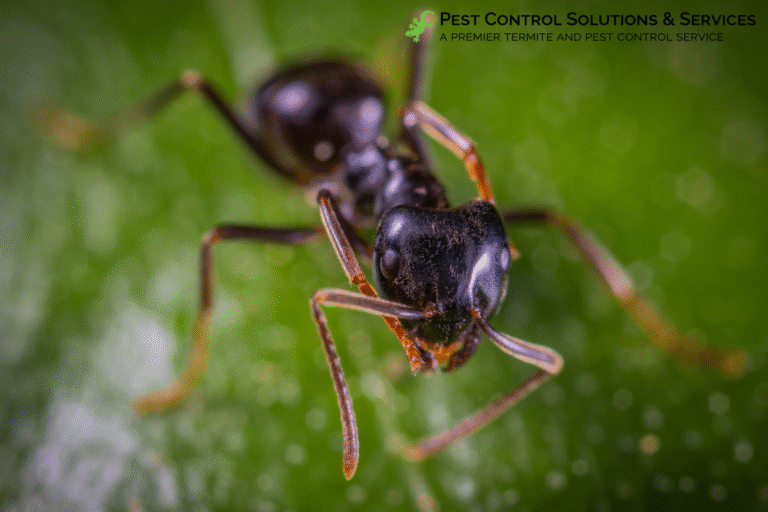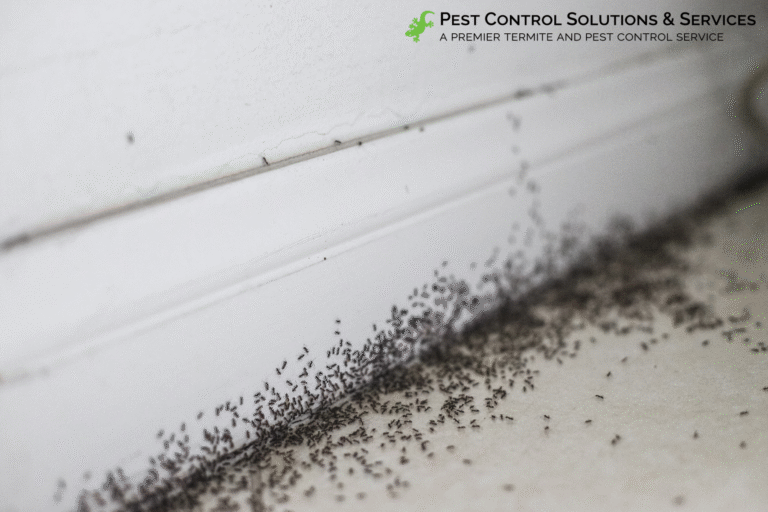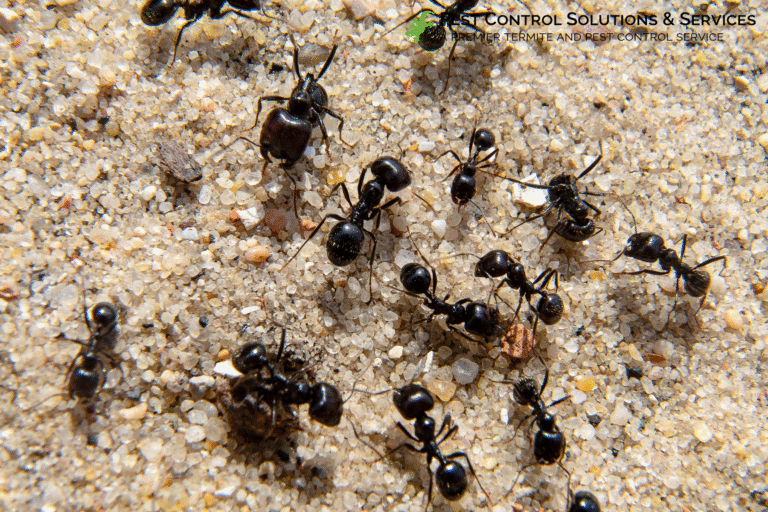When most people think about ants, they picture long trails of tiny insects marching across countertops or through cracks in sidewalks. What many don’t consider is the incredible complexity behind an ant colony, particularly the hidden world of ant eggs. Understanding ant eggs isn’t just for science lovers; it’s key to effective pest control and protecting your home from infestation.
What Are Ant Eggs?
Ant eggs are the beginning stage of the ant life cycle. These eggs are laid by the queen, the reproductive center of the colony. They are typically white or cream-colored, oval-shaped, and extremely small, often less than 1 millimeter long. When clustered together, ant eggs may look like tiny grains of rice.
Depending on the species, a queen ant can lay thousands of eggs throughout her lifetime. The number of eggs produced and their development can also be influenced by environmental conditions such as temperature, humidity, and food availability.
If you’ve ever wondered what do ant eggs look like, these pale, delicate capsules are often found in well-protected, humid areas deep within nests, a reason why infestations can go undetected for long periods.
Why Ant Eggs Matter
Ant eggs play a crucial role in colony survival and expansion. Without eggs, there would be no workers, soldiers, or new queens to carry on the colony. More importantly for homeowners, the presence of eggs indicates that an ant colony is not just visiting it’s established nearby.
Seeing ant eggs inside your home is a sign that the infestation has reached a serious stage. It means ants feel safe enough to breed and expand in your space, which calls for immediate intervention.
The Ant Life Cycle: From Egg to Worker
After the queen lays her eggs, they go through several stages:
- Larvae: After a few days, the eggs hatch into legless larvae. These larvae are fed and cared for by worker ants.
- Pupae: Larvae spin a silk cocoon and enter the pupal stage, during which they transform into adult ants.
- Adult Ants: Once the transformation is complete, the new ants emerge ready to take on their roles in the colony.
Each ant caste workers, soldiers, and queens develop from the same type of egg. Their final role is determined by factors like nutrition and pheromones in their environment.
Where Are Ant Eggs Usually Found?
Ant eggs are almost always hidden in the heart of the nest. Indoors, nests might be located:
- Inside walls
- Behind baseboards
- Under floors
- In potted plants
- Inside electrical outlets or appliances
Outdoors, nests are often hidden beneath soil, rocks, mulch, or tree roots. If you spot ant eggs near entry points or in hidden indoor crevices, it’s likely the infestation is already advanced.
Signs You Might Have an Ant Egg Infestation
While ant eggs are typically hidden, certain signs can indicate their presence:
- Consistent trails of ants leading into walls or cabinetry
- Piles of dirt or frass (ant droppings) near baseboards or outlets
- Dead ants appearing regularly indoors
- A musty or slightly sour odor in areas where ants are nesting
The discovery of ant eggs or larvae during cleaning or remodeling is a sure sign it’s time to search for ant control near me.
How Ant Eggs Complicate Pest Control
Treating visible ants is only one part of the solution. The real problem lies in the colony’s hidden center the queen and her eggs. Standard cleaning or DIY methods usually fail because they don’t reach the core of the infestation.
If eggs are left undisturbed, new waves of ants will continue to emerge, no matter how many you eliminate on the surface. That’s why a strategic, professional approach to pest control is necessary for long-term success.
The Importance of Professional Treatment
At-home remedies may kill some adult ants, but they rarely destroy nests or eggs. Professionals use environmentally friendly techniques and products to reach deep into ant colonies without disturbing your home’s peace. Modern treatments focus on baiting strategies and targeted applications that disrupt reproduction cycles and eliminate eggs.
Routine service through monthly, bi-monthly, or quarterly treatments is crucial for keeping colonies from re-establishing themselves.
Are Ant Eggs Dangerous?
Ant eggs themselves aren’t dangerous. They don’t bite, sting, or carry diseases. However, their presence is a red flag indicating that a colony has settled in. Some ants, like carpenter ants, can damage wood structures, while others may invade food supplies or even electrical systems.
Large colonies with thousands of eggs can quickly grow out of control, making future treatment more difficult and costly.
What to Do If You Discover Ant Eggs
If you come across what you believe are ant eggs inside your home:
- Avoid disturbing the area excessively, which may cause ants to relocate.
- Do not attempt to vacuum or dispose of them without a plan in place.
- Contact a licensed pest control professional for inspection and treatment.
If you live in the area and are seeking reliable help, pest control Hudson services can provide quick and thorough solutions tailored to your home or business needs.
Final Thoughts on Ant Eggs and Home Infestations
Ant eggs might be tiny, but their implications are anything but. Spotting eggs signals a deeper infestation that can compromise your comfort and property if left unchecked. Understanding their role in the colony helps homeowners realize why simple surface-level fixes rarely work.
If you’re spotting ants, suspect nesting activity, or want to stay ahead of potential infestations, now is the time to consult your local experts.

About Pest Control Solutions & Services
Pest Control Solutions & Services is your trusted local partner for professional pest management. We proudly serve homes and businesses across Florida, including Hudson pest exterminator solutions, with tailored services that go beyond surface treatments. As a “mom-and-pop” shop with a statewide reach, we understand the importance of personalized, effective care.
Our treatment plans use only the safest, most effective, and environmentally friendly methods to protect your family and pets. Whether you’re dealing with ants, roaches, or other common pests, our highly trained technicians conduct thorough inspections and apply customized treatments designed to eliminate pests and keep them from returning.












